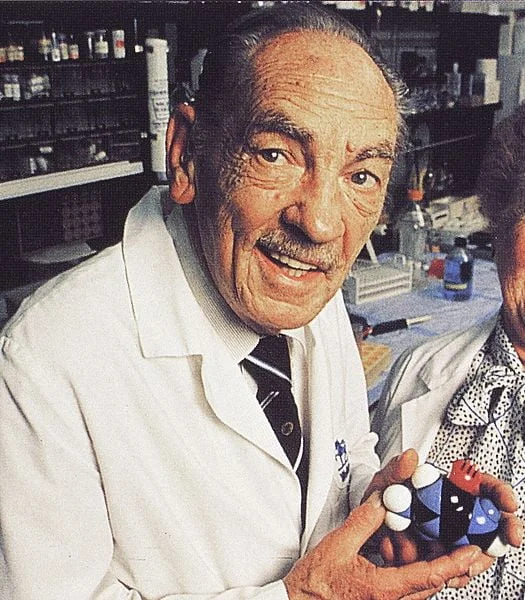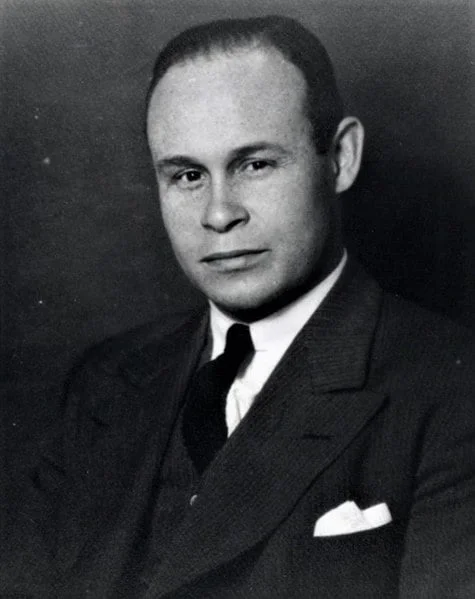Real Celebrities Never Die!
OR
Search For Past Celebrities Whose Birthday You Share

source:.wikipedia.or
George H. Hitchings
Birthday:
18 Apr, 1905
Date of Death:
27 Feb, 1998
Cause of death:
Natural causes
Nationality:
American
Famous As:
Doctor
Age at the time of death:
92
George H. Hitchings's Quote's
Early Life and Education
George H. Hitchings was born on April 18, 1905, in Hoquiam, Washington. He grew up in a family that moved frequently due to his father’s work in the lumber industry. Despite the instability, Hitchings excelled in school, especially in science. His early fascination with chemistry led him to pursue higher education at the University of Washington, where he earned both his bachelor’s and master’s degrees. Eager to explore the mysteries of life, he continued his academic journey, completing his Ph.D. in biochemistry at Harvard University in 1933.
The Beginning of a Revolutionary Partnership
After earning his doctorate, Hitchings’ career took a transformative turn when he met Gertrude B. Elion, a young biochemist with a passion for understanding disease mechanisms. Their meeting marked the beginning of one of the most legendary partnerships in medical history. United by their shared curiosity and dedication to science, Hitchings and Elion worked together to push the boundaries of drug discovery, exploring methods that would forever change medicine.
Pioneering Rational Drug Design
At the time, most drugs were sourced from nature, often discovered by trial and error. However, George H. Hitchings and Elion took a different approach. They believed that drugs could be designed to target specific biological mechanisms within pathogens or human cells. This new method, known as “rational drug design,” allowed them to create drugs with precision and purpose, based on a deep understanding of biology and chemistry.
Breakthroughs in Medicine
The team’s first significant breakthrough came with the development of 6-mercaptopurine (6-MP), which became a game-changer in the treatment of leukemia, particularly for children. From there, their work led to a cascade of life-saving drugs, including:
Azathioprine: Used to suppress the immune system and prevent organ rejection in transplant patients.
Taxol: A powerful chemotherapy drug derived from the Pacific yew tree, effective against several types of cancer.
Dapsone: A treatment for leprosy, helping to combat the stigma and devastation of the disease.
Trimethoprim: A widely used antibiotic effective against a range of bacterial infections.
Award-Winning Accomplishments
George Hitchings and Elion’s work did not go unnoticed. Their groundbreaking achievements earned them numerous accolades, including the Nobel Prize in Physiology or Medicine in 1988, shared with Sir James Black. Although they received many prestigious awards, the real reward for both scientists was the lives they saved through their innovations in medicine.
Life Beyond Science
Despite his impressive scientific career, George Hitchings led a well-rounded life. He was a devoted husband and father, always making time for his family. He also believed in giving back to the community, serving as director of the Burroughs Wellcome Fund, which supported biomedical research. Furthermore, Hitchings founded the Greater Triangle Community Foundation in North Carolina, contributing to local philanthropy and community development.
Lasting Legacy
George H. Hitchings passed away on February 27, 1998, at the age of 92. His contributions to science and medicine continue to inspire generations of scientists, researchers, and medical professionals. Hitchings’ story is a reminder of the power of curiosity, collaboration, and a commitment to improving the world through science. His legacy endures, shaping the future of drug discovery and health care for years to come.
Name:
George H. Hitchings
Popular Name:
George H. Hitchings
Gender:
Male
Cause of Death:
Natural causes
Spouse:
Place of Birth:
Hoquiam, Washington, U.S.
Place of Death:
Chapel Hill, North Carolina, U.S.
Occupation / Profession:
Personality Type
Logician: Innovative inventors with an unquenchable thirst for knowledge. He had discovered important principles for drug treatment and had contributed many innovative ideas to the medical field.
Beyond his scientific contributions, Hitchings was known for his commitment to mentoring and supporting young scientists, fostering a culture of collaborative research in his laboratory.
George H. Hitchings' collaborations with Gertrude B. Elion were marked by a complementary synergy. While Hitchings had a strong background in biochemistry, Elion brought expertise in pharmacology and enzymology to their research.
The development of 6-mercaptopurine was a major breakthrough in cancer treatment, becoming one of the first drugs to show significant efficacy in treating leukemia.
Cameron Prize for Therapeutics of the University of Edinburgh (1972)
ForMemRS (1974)
Gairdner Foundation International Award (1968)
Nobel Prize in Physiology or Medicine (1988)

